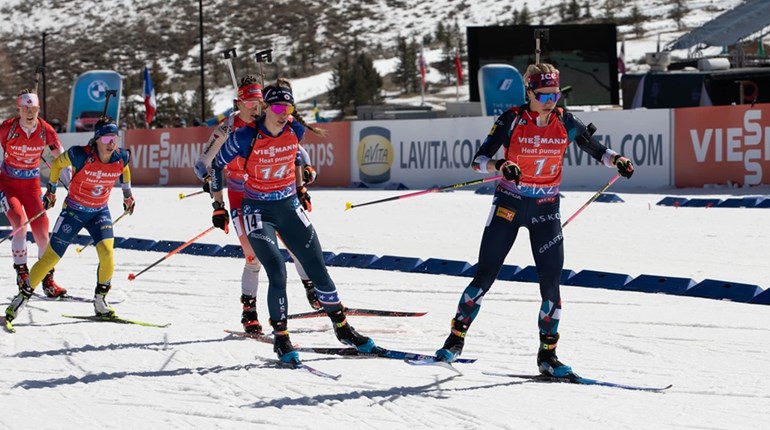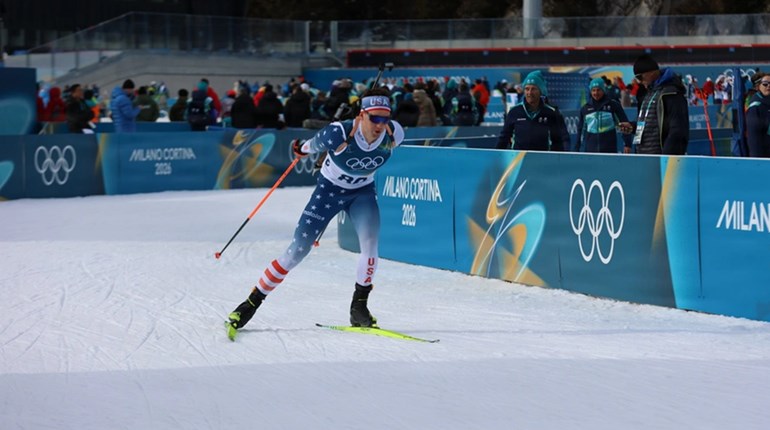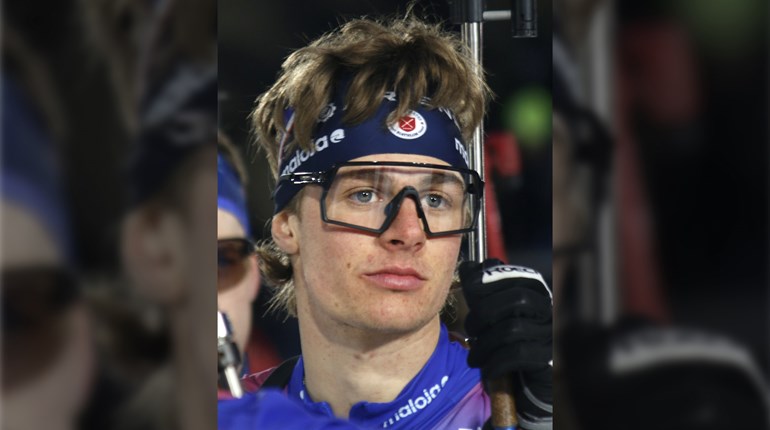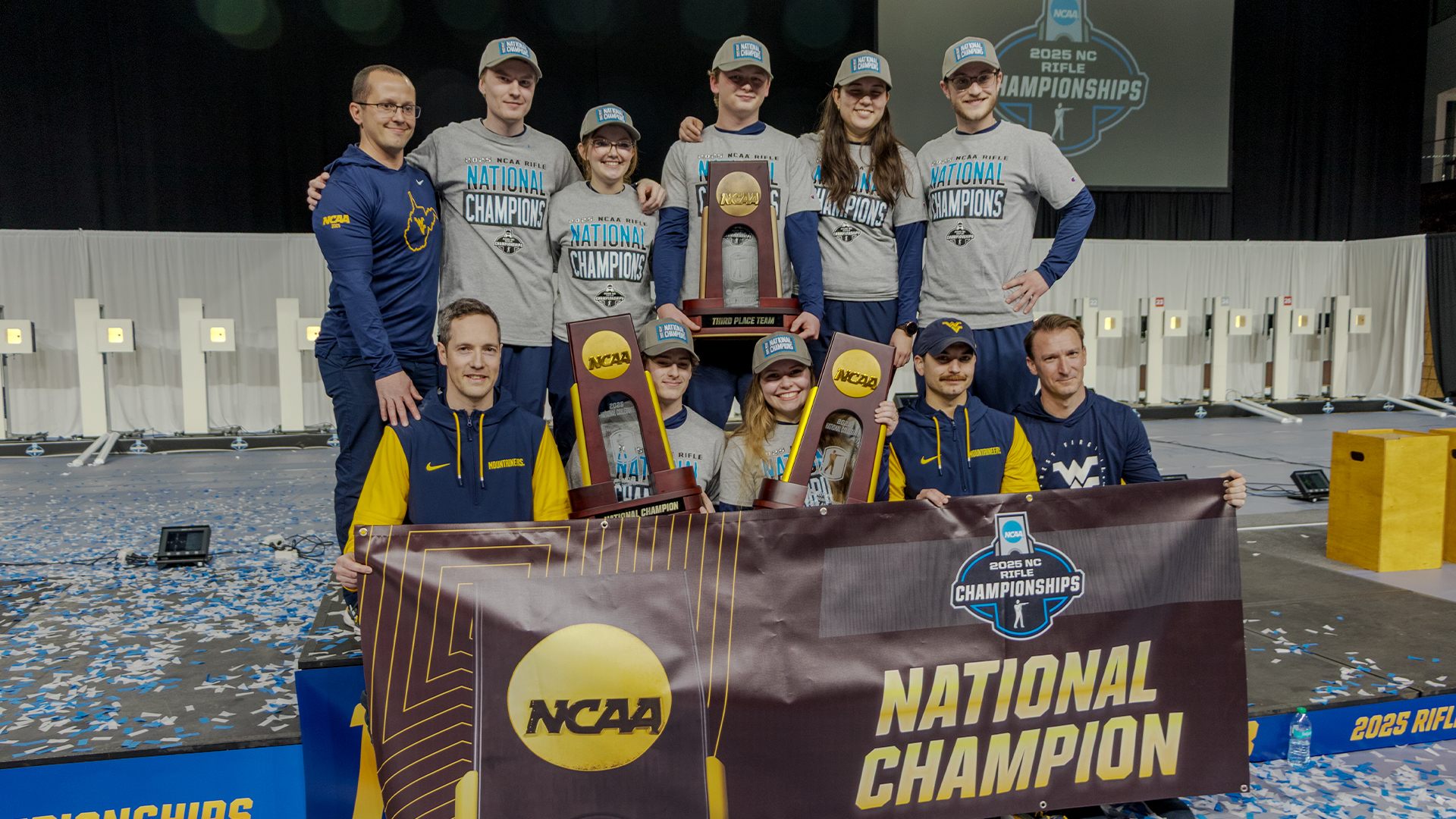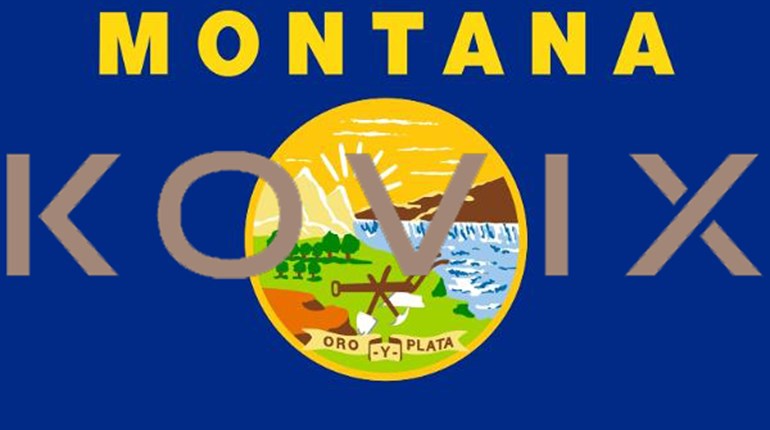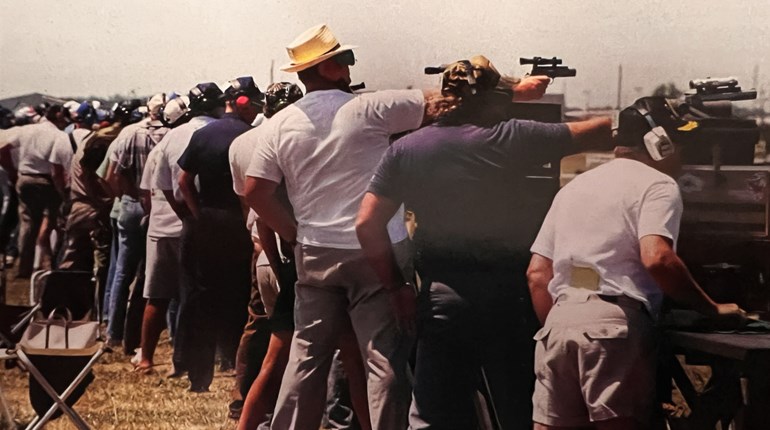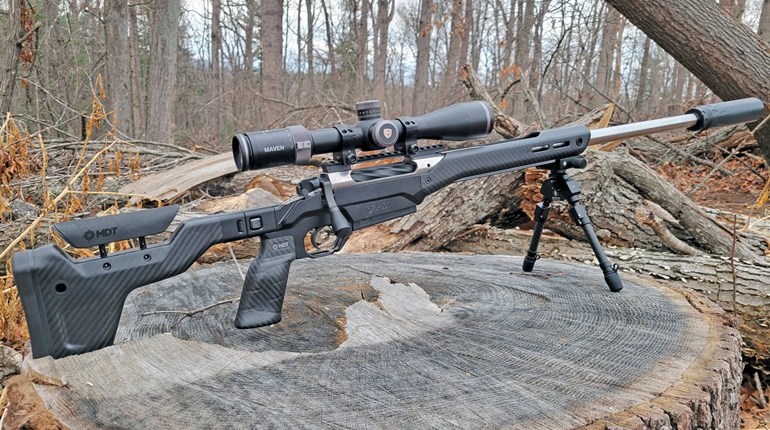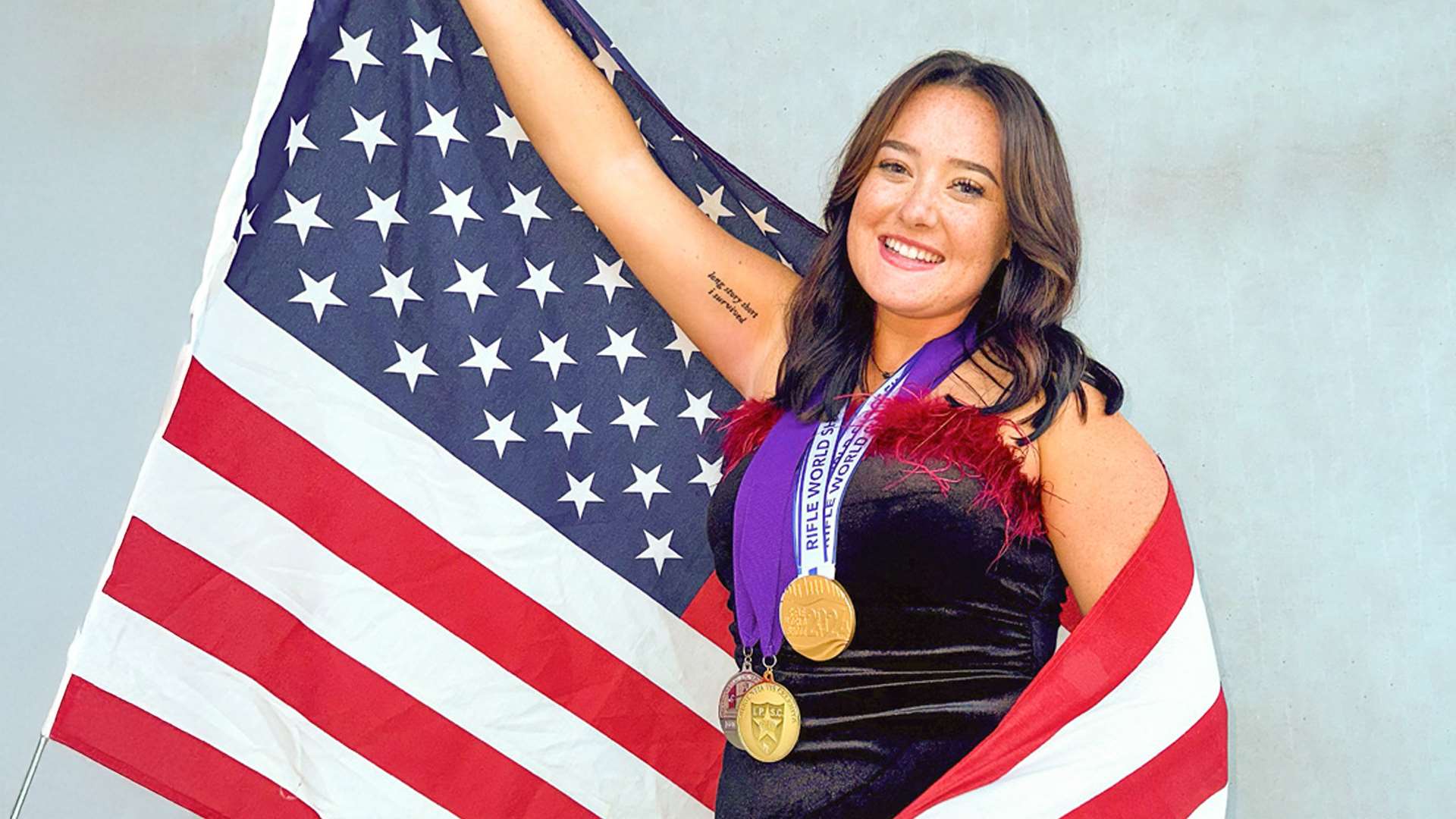
I had the honor of not only representing USPSA, but also our great nation, at the 2024 IPSC Rifle World Shoot held in Oulu, Finland, from July 30 to August 10. I was one of 71 shooters chosen to represent the United Sates, and was also selected to be on the U.S. Ladies Semi-Automatic Open team with Lena Miculek, Lanny Barnes and Becky Yackley. The U.S. Ladies Semi-Automatic Open team has never lost the gold in the three IPSC Rifle World Shoots held thus far, so I had big shoes to fill.
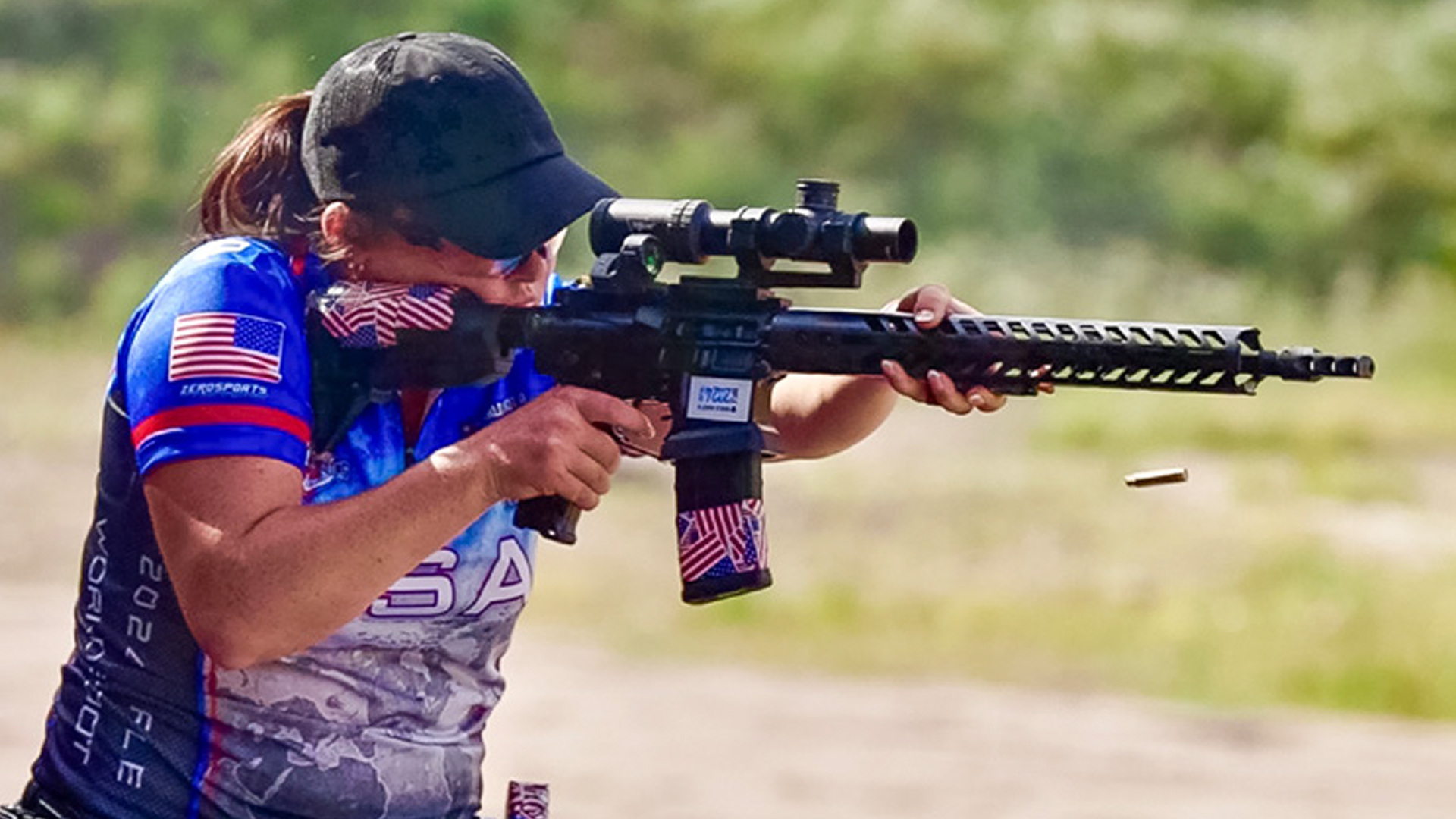
Historically, Finland has all around been the “better” rifle shooters. But also, historically, there has never really been a selection process for the United States. It’s been whoever wants to go could get the slots. This year, USPSA had a selection process to determine who made the teams.
I have never attended an IPSC Rifle World Shoot. Even though this was my first one, my goal was still to podium in the Ladies category. Having no idea what to expect, I asked USPSA members who had previously attended the match in Sweden and Russia. What they had to say made me nervous. “Be prepared for funky tight positions.” Okay, I can practice that. “Be prepared for nothing being within 25 yards and the average distance 100 yards.” Okay, not my forte, but I can work on it. “Be prepared for strict rules on all equipment.” Okay, I’ll read the rulebook multiple times. Nevertheless, I prepared the best way that I knew how … training.
Nothing beats raw range time. I was out practicing four times a week, training to improve on my weaknesses, offhand long shots, kneeling bipod long shots, shooting off unstable positions and more. Walking into this match with no other IPSC rifle experience, I knew it was going to be a challenge. However, I was willing to train the best way I knew how and to not give up.
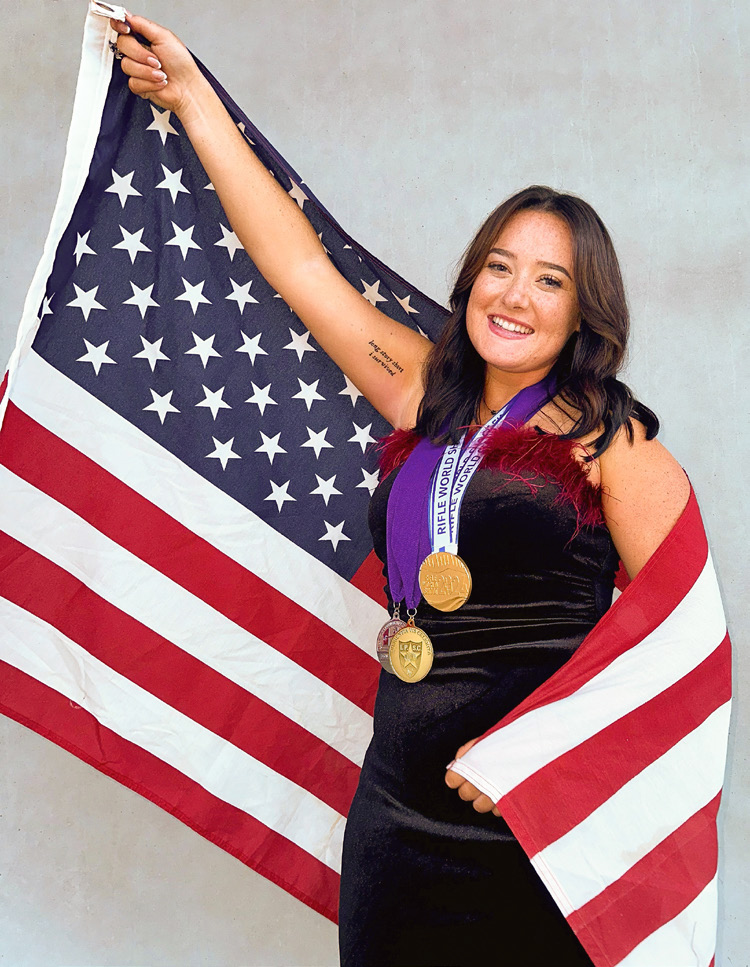
As the days approached to take off for Finland, I was feeling ready. I was also feeling a little stressed, but only because the amount of gear that needed to be placed in three bags and weigh less than 50 pounds apiece was going to be a struggle in itself. My gun was in tip-top, performance-ready shape, and so was I.
Once we landed in Helsinki, Finland, it was quite easy. We picked up the guns, loaded them in the van, and we were off to our hotel as we were exploring Helsinki that day, and tackling the seven-hour drive to Oulu the next. I slept the entire ride to Oulu, as jet lag was hitting me hard.
The main match consisted of six total days of shooting but you have one day off, so your schedule is dependent on which day you have off. I shot for three days, had one day off, and shot for another two days. As I have always said, this is a marathon, not a sprint. No one will shoot a perfect match, but it’s whoever can come back the quickest will do the best.
Moving on to my performance for the five days of shooting, I would say that 90 percent of the stages were solid. Those stages didn’t have anything too crazy and nothing I wasn't prepared for. I felt my practice leading up to the match had gotten me ready for those stages. This made my first two days extremely solid. I didn’t have anything extraordinary, but I also didn’t have any bomber stages, so it was a win on my part. After the first two days of shooting, I was in second place and my team was winning. However, day three was a whole different ball game.
Stage 29: I’ve given a whole lot of thought to Stage 29. I could sit here and say, without that stage, the results would have been different—not just for me, but a lot of competitors would probably feel the same way. I could say the stage was unfair, depending on when you shot, and some of us were unfamiliar and skeptical of the electronic target system. But I won’t. The beauty and curse of our sport is you get one shot to perform your best … only one. Unfortunately, the one shot I had on that stage didn’t go so well.
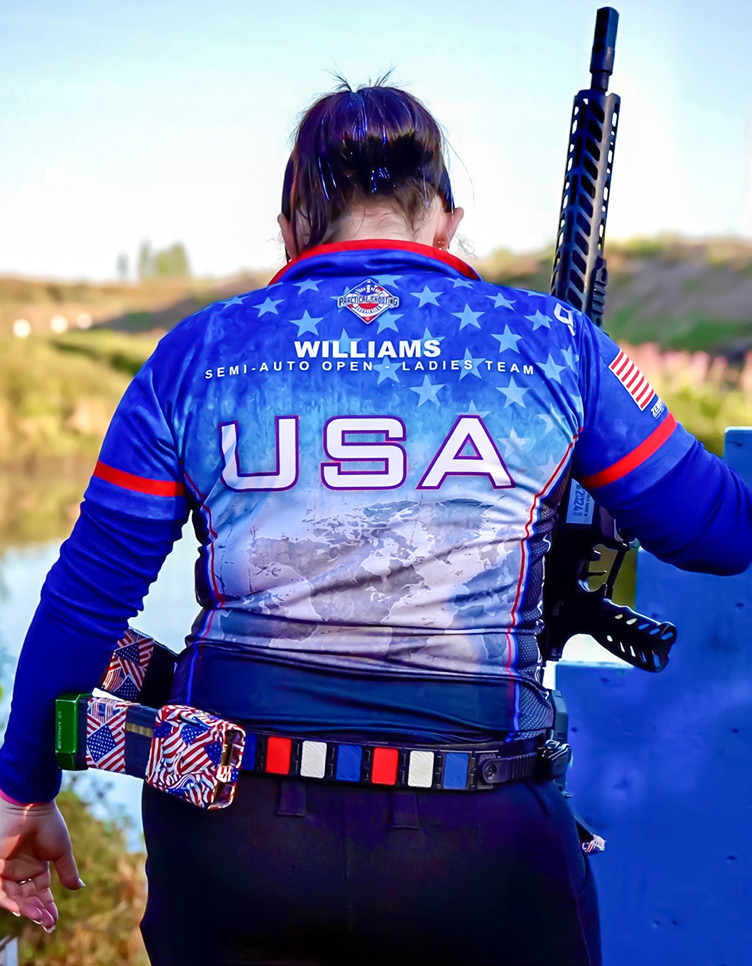
I’m pretty sure I haven’t truly zeroed a stage in the past couple of years, and unfortunately, at the 2024 IPSC Rifle World Shoot, I not only zeroed one stage, but zeroed two stages. Two stages. Ouch … I haven’t felt so defeated by a single stage at a competition more than I did at Stage 29. It truly made me question why I was even there. It took a toll on me. I was embarrassed. I was angry. But why was I angry? I prepared the best way I knew how. It wasn’t like I wasn’t trying. I tried so hard. I did everything I was told, and still, it was not the outcome I wanted. The rest of the day, I felt defeated. It showed in my scores as well. I went from a safe second place to barely in fourth place and our team dropped to second place.
Fortunately, I had the next day off, which gave me the day to get the “feeling sorry for myself” out of my system. I was able to assess what I needed to change for the next two days of competition, and turn my attitude from “I'm not worthy” to “I am enough with or without reaching my goal.”
The next day was truly a mental battle. I knew I could hit the targets. I knew I could go fast if needed. But could I pull it together when I needed it most? After the fourth day, I held my position in fourth place. I had to do an assessment. How do I take the last day of shooting? Do I play it safe and hope that it's enough? If I do that, I might not make up any points and just hold the fourth position, and therefore not make my goal. If I pushed the last day, could I push enough to make the top three, but still shoot controlled enough to not blow any stages?
I decided that I didn’t come this far to play it safe and miss my goal by one spot, so I decided to push. I was doing the hit factor math on every stage, before I would shoot it, to see if I should push for speed or if I should get better points. The first two stages were solid. I went from being behind by more than 16 points to being ahead by four points. Then we went to Stage 7, which was a Finnish-specific target called the running moose. Almost half of the match zeroed the stage … all I had to do was not zero it. And I zeroed it. Then I had to recompose myself—again—and remind myself that we still had three stages left, and it wasn’t over until the last shots were fired.
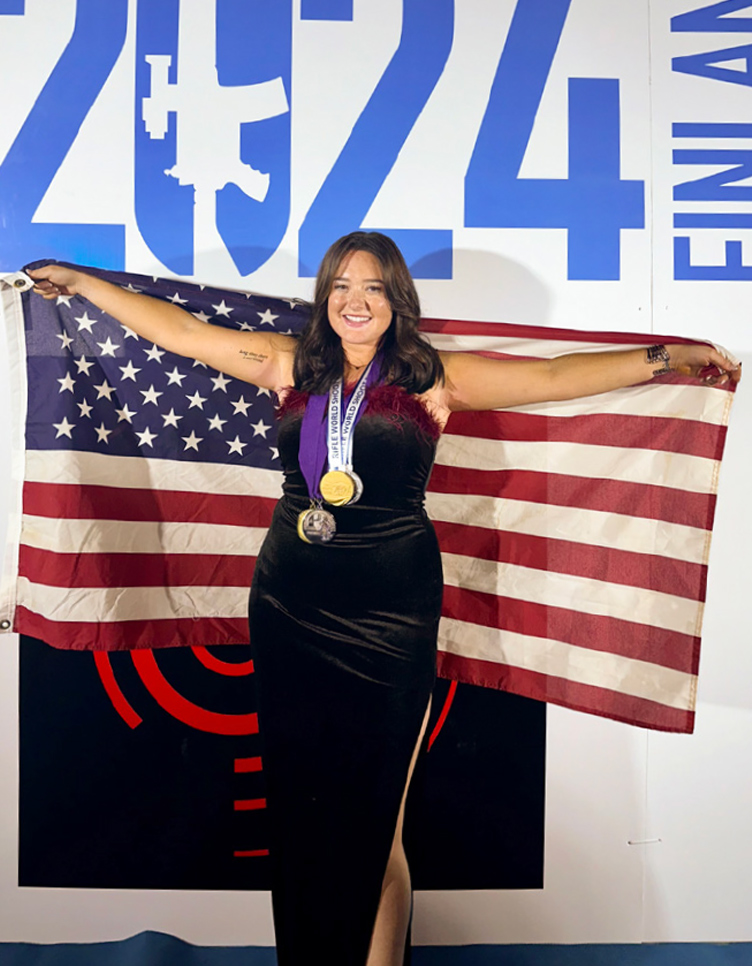
Walking into one of the biggest stages of the match, I knew I had to “risk it for the biscuit.” It was a long course, where time rules and you could expect many more Charlies than usual. This was my forte, and that’s what I did. I gained more than 60 points on that stage. I knew that it was enough to podium.
Going into the last stage, I was feeling all the emotions. I just had to complete the stage in a decent time with no penalties. After I finished the stage, I ran out to the far targets to see my hits. They were there. I had a flood of relief and happiness come over me. My eyes started to water a little bit because I knew I had pulled it off. All the self-doubt and feeling of disappointment in myself and possibly letting down my country was gone. What I didn’t know until a little later was not only did I make the podium, but I was able to pull off second place.
If you had asked me if I would feel happy with my second-place finish six months ago, I would have told you probably not. But not only did I learn new things at this match, I learned to trust myself and believe I can do it no matter what. That it is truly never over until the last shot is fired. And no matter what happens, your family and friends are proud of you.
One of the greatest honors I have ever felt was standing on the podium, holding our flag high and listening to the greatest song ever created. We pulled off the team win against some great competitors. The United States had a better showing at the 2024 IPSC Rifle World Shoot than ever before, and it showed. We brought home more team and individual medals than ever before. It wasn’t without struggle. It wasn’t without fear. But it was with perseverance. It was with determination and never giving up.
Article from the November/December 2024 issue of USPSA’s magazine.













